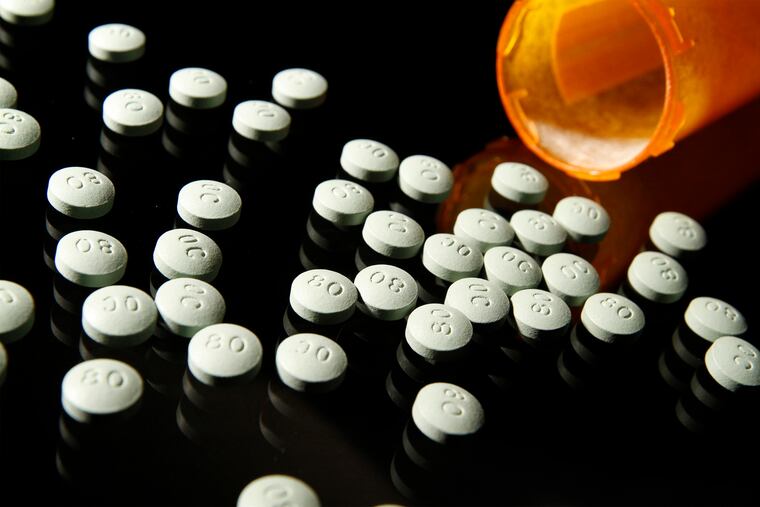To increase disposal of leftover opioids, give parents a bag of ... coffee grounds?
In this era of high prescription drug costs, throwing away unused opioids may seem wasteful. But leftover pills are a danger to youngsters.

To combat opioid misuse, doctors who prescribe the addictive painkillers for youngsters should give their parents a Ziploc bag loaded with coffee grounds.
Dirt, cat litter, or another unappealing substance can be used instead of coffee grounds.
The idea — validated by a University of Michigan study — is that parents will be nudged to trash, rather than stash, leftover opioid pills that could tempt misuse among teens or even tots. All the parents have to do is mix the pills with the coffee grounds, then throw the baggie in the garbage, as public health officials recommend.
A third of parents who were given a baggie along with the prescription promptly disposed of leftover pills (and emailed a photo to prove it), compared with 19% of parents who went home without a baggie, the Michigan researchers found. The disposal rate was even better — 39% — for parents in the baggie group who also read blunt online warnings about children overdosing and even dying after pilfering pills.
“Parents think they can keep unused pills safe,” said Terri Voepel-Lewis, a University of Michigan nurse, pain management researcher, and lead author of the new study in Pediatrics. “But when they’re told their kid or grandkid might be harmed, they decide it’s not worth the risk.”
Parents who got the dual nudge of a baggie for disposal and risk education were also the least likely to say they planned to hold on to pills, based on surveys the participants filled out three times during the study period.
“I think the most interesting thing is how such a simple intervention can have such a big impact,” said Mitesh Patel, a University of Pennsylvania physician and health-care management researcher, who was not involved in the study. “That’s the hallmark of nudges.”
Three years ago, Patel set up Penn’s innovative “nudge unit,” aiming to use behavioral science research to save money while improving medical care. Interventions such as making generic drugs the default option in electronic ordering systems influence doctors’ choices, while digital games and monetary awards have encouraged patients to make healthful changes.
» READ MORE: As addiction crisis grows, Penn 'nudges' doctors to limit opioid prescriptions
The Michigan nudge study recruited 517 parents of children ages 5 to 17. The experiment took aim at a well-documented problem. Opioids are now routinely prescribed for pain after many pediatric surgeries, including tonsillectomy. Despite conservative prescribing guidelines, doctors have a habit of authorizing more doses than are needed — a way to avoid anxious calls for refills.
In the new study, 75% of the children had unused opioids after recovering from serious surgeries, in most cases sports injuries, fractures, or orthopedic abnormalities.
Leftover opioids are “a major source of accidental and intentional" misuse by youngsters, the researchers wrote. Indeed, studies have found that 40% to 50% of adolescents who admit misusing opioids started by accessing their own leftover pills, or those of a relative or friend.
» READ MORE: Opioids are overprescribed for women with cesarean deliveries
“It’s like guns. Parents put [the medication] on a high shelf and think their kids don’t even know where it is,” Voepel-Lewis said.
Attempts to reduce pill stashes by providing written disposal directions, giving store credit for returned pills, or community take-back sites haven’t been very successful, the Michigan researchers noted.
While the new intervention was clearly effective, it also highlighted how common opioid misuse has become. About 70% of the parents had personally taken opioids in the past. When they were asked whether they ever shared or borrowed opioid pills, or took more than prescribed, 61 of them — 17% — said yes. That subgroup was more likely to plan to hold on to pills and less likely to be nudged into prompt disposal.
That finding was particularly troubling, the researchers concluded, because research shows that parental prescription opioid misuse “increases the risk for adolescent misuse.”